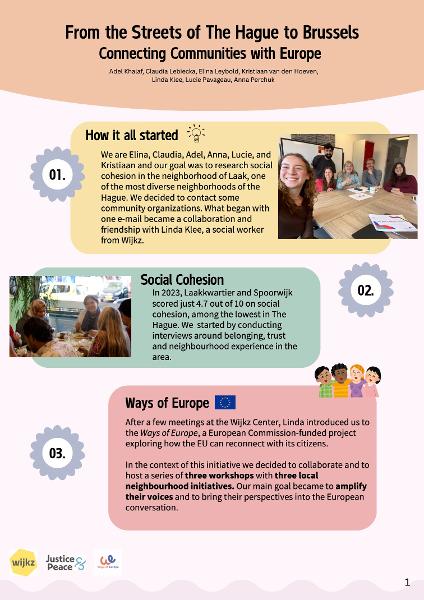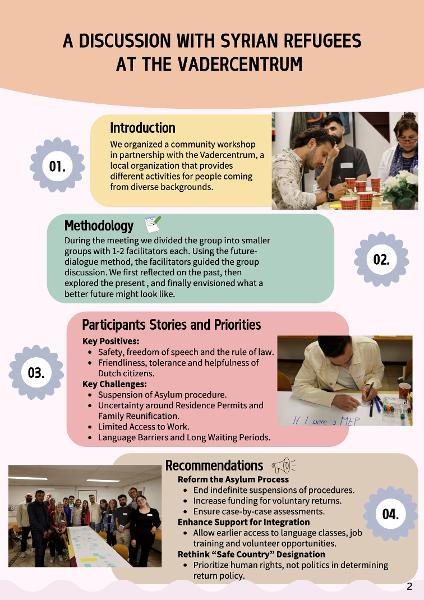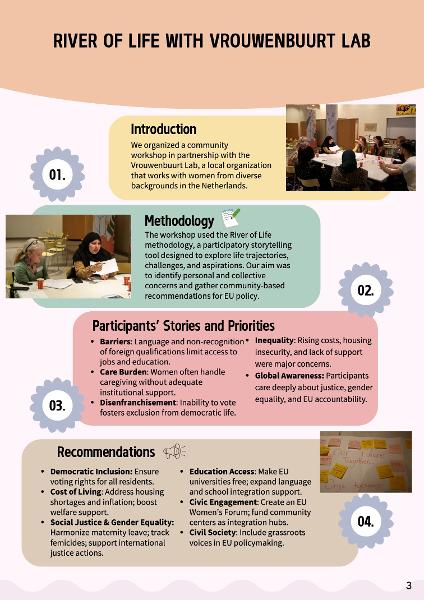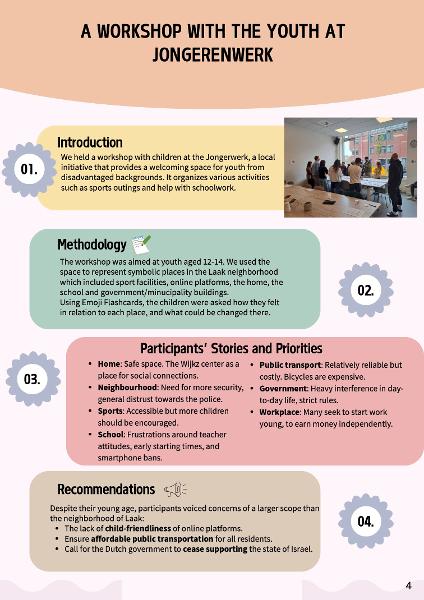From The Hague: Listening to Local Voices for a Better Europe
From May 19th until May 21st the Ways of Europe Project landed in the Hague, the Netherlands where the Wijkz Centre and a group of students collaborated and hosted a series of three different workshops in the neighbourhood of Laak
A Discussion with Syrian Refugees at the Vadercentrum
The first workshop took place at the Vadercentrum, a local organization that provides activities for people coming from diverse backgrounds. During the meeting the participants were divided into smaller groups and using the future-dialogue method the refugees reflected on the past, the present and finally envisioned what a better future might look like. The final question was: “If I were an MEP I would…”, and possible future policies were discussed. What became clear is that effective and just policies, require the inclusion of the people who are most affected by them. The main concerns were limited access to work, uncertainty around residence permits, family reunification and language barriers.
River of Life with VrouwenBuurtLab
The second workshop took place at the VrouwenBuurtLab, an organization that works with women from diverse backgrounds in the Netherlands. The workshop used the River of Life methodology which is a participatory storytelling tool designed to explore life trajectories, challenges and aspirations. The aim was to identify personal and collective concerns and gather community-based recommendations for EU policy. The main concerns were non-recognition of foreign qualifications, caregiving without adequate institutional support and rising housing costs. At the end of the workshop the participants worked on collective future solutions. The recommendations ranged from increasing welfare support to creating an EU Women’s Forum. Other recommendations included integrating grassroot voices into EU policymaking and funding more community centres.
A Workshop with the Youth at Jongerenwerk
The final workshop took place at the Jongerenwerk and was aimed at youth aged between 12 and 14. The facilitators used the space to represent symbolic places in the neighbourhood to find out where the participants felt safe and what they would like to change. Using emoji flashcards, the children were asked how they felt in relation to each place and what could be changed there. Despite their young age, participants voiced various concerns such as high transportation costs, the need for more security in the neighbourhood and the ongoing genocide in Gaza.








